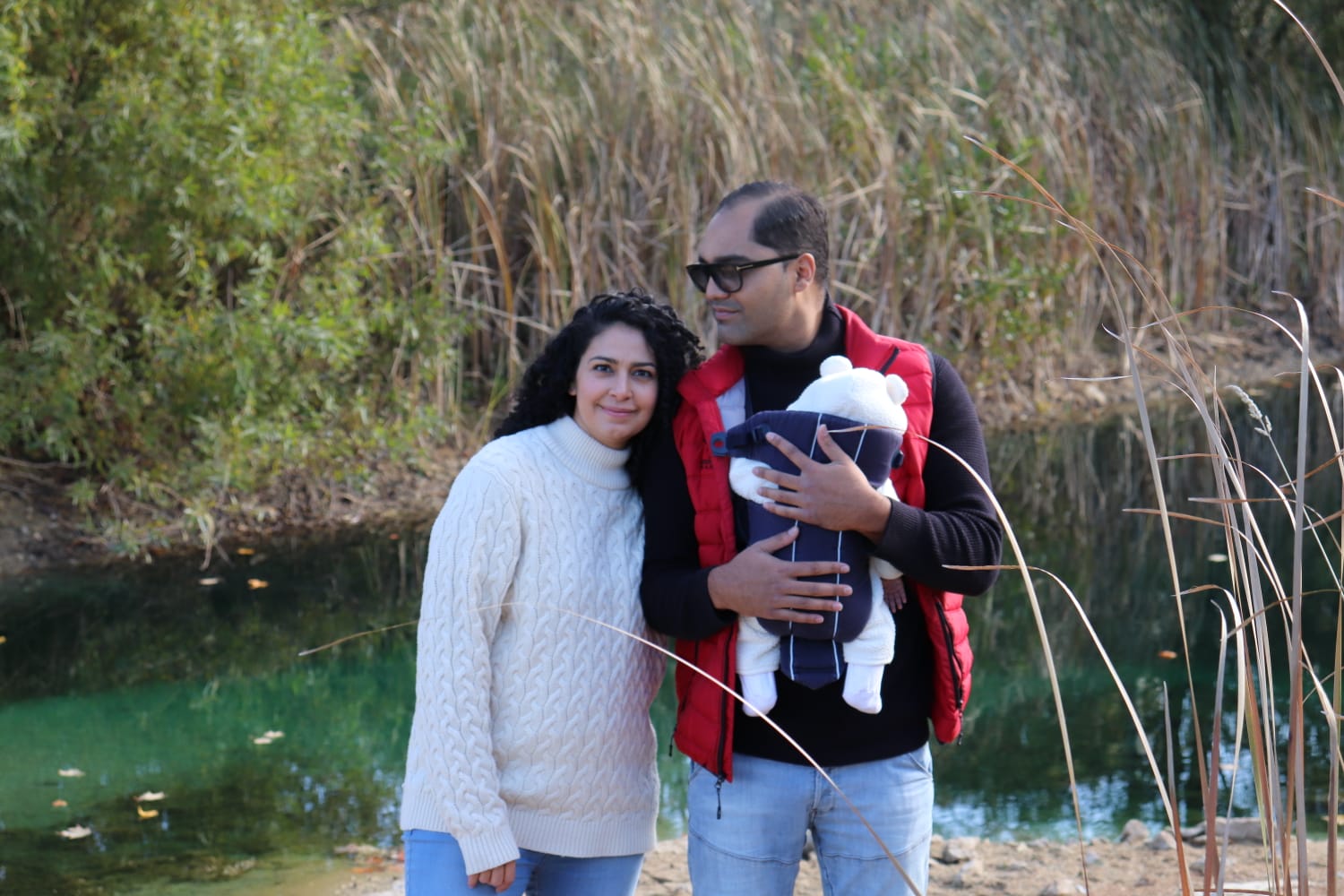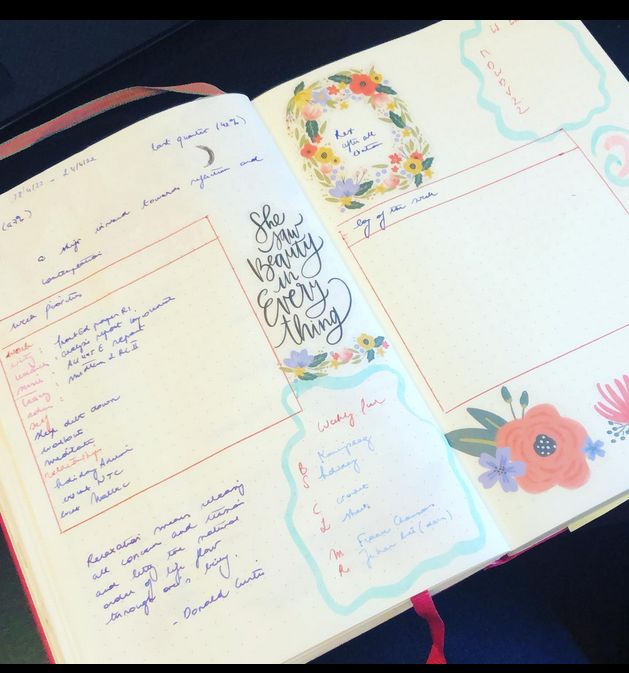
I am Maxine Britto, and This is How I Work as an Academic Parent
Today, I have the pleasure of interviewing Maxine Britto in the How I Work series, academic parents edition. Maxine is a second year doctoral student in education, based in Canada. She is studying validity and reliability of classroom assessment in first semester college communication courses. After teaching English as a subsequent language for several years, in 2010 she transitioned to working in postsecondary leadership. Maxine enjoys strong coffee, listmaking, and therapeutic baking. You can find her on Twitter @maxinebritto and Instagram @theeducationportfolio.
Current Job: Educational Administration; postsecondary
Current Location: Canada
Current mobile device: a cracked iPhone
Current computer: a ThinkPad
Can you briefly explain your current situation and research to us?
I’m a second year student doctoral student within the social sciences discipline of education. I’m studying classroom assessment in first semester college communications courses. I am just finishing up my second maternity leave and will shortly return to my college workplace where I am employed in an academic leadership position.
What tools, apps and software are essential to your workflow?
Outlook is essential for me. I use the task blocking technique to manage my time; when I am really stressed, I even colour code my calendar.
Instagram is a favourite app because I use it to reflect on my doctoral learning and as a way to create a community of practice within my research life. Making reflection concrete has really helped me stay motivated during my learning.
Excel is my other favourite tool. I keep one big tracking document for my doctorate with tabs for my annual GAANT chart, a master ‘to do’ list, and checklists such as: all of the tags I have created in Zotero, my process for reviewing literature, and even notes from coursework. All of this feeds into my Outlook task blocking system.
I also love OneNote, but I use that in my professional life moreso than in my academic life.
What does your workspace setup look like?
I am currently at a desk in my light-filled bedroom, but I am moving to a new desk setup in my basement this Spring. I’ll have less light, but it will be quieter with access to a kitchenette – easy coffee access is a must. I like having a consistent workspace; I also like switching up my space every so often as it is somehow quite refreshing. A little bit of noise keeps me focused … unless I’m doing something with statistics!
What is your best advice for productive academic work?
I have noticed three things about my academic work: firstly, that results from productivity are slow. The little daily wins seem tiny to me. Keep on adjusting my expectations and that helps to stay motivated because I generally find that a little bit of academic work daily seems to help me stay focused. Secondly, I’ve learned to reserve self-judgement when it takes me between 30-45min just to zone-in for an academic work session. This second strategy helps me to be more productive. Lastly, there is a decent amount of “admin” work which I reserve for an hour or two every week, or during low energy times of the day, like evenings. Otherwise, I lose productivity during my high energy times of the day, like mornings.
What is your best advice for academic parents?
Firstly, there’s a mindset piece for me. It’s a pandemic. I’m home and the kids are home. I think it’s a gift for my children to see me studying, so even though it can seem like an interruption, I respond with a smile when one of them runs upstairs to tell me something, or to give me a hug, or … usually … to ask me to play. I think this mindset is essential before any parent decides to take on any kind of additional learning.
The second piece of advice likely depends on an individual’s personal situation and goals: for me, I have completely abandoned the ‘publish or perish’ mentality. As an academic parent, I have taken on very little during the first two years of my doctorate, outside of my coursework. I have applied to a few conferences and I am working on one publication; No editorial or copyright work; Little to no teaching or research assistantships. I decided early on to focus on my coursework and dissertation, since that was already a lot, especially when you add parenting, working and COVID into the mix. I have no regrets.
How do you keep an overview of projects and tasks?
I use a self-created Excel GAANT chart for this and map it to a master to do list of tasks (also in Excel), which also maps to my calendar. I keep a huge parking lot of tasks as well. I have slowly been moving towards only working on one project at a time.
Besides phone and computer, do you use other technological tools in work and daily life?
I don’t use a lot of other technological tools other than the most important piece of technology: the coffee maker! I try to stay paperless, but keep a notebook nearby when I am studying, so that when ideas pop into my head, I can quickly write them down and get back to the task I am working on.
Which skill makes you stand out as an academic?
I think the skill that makes me stand out as an academic is my lack of competitiveness. I am entirely self-motivated to conduct my research. Leaning into academic life because I ‘want’ to, is refreshing compared to many things in life that I ‘have’ to do, especially as a parent.
What do you listen to when you work?
Children playing downstairs 😉 Really, nothing. When I am really in the zone, I end up talking to myself. Yes, out loud.
What are you currently reading? How do you find time for reading?
My reading list and research standpoint are definitely influenced by my academic leadership experiences. I’m currently reading Stephen Covey’s ‘The Seven Habits of Successful People’ and Stone, Patton & Heen’s ‘Difficult Conversations’. I also just finished reading Susan Brookhart’s ‘Classroom Assessment and Educational Measurement’ which is definitely essential reading for anyone studying topics within the field of classroom assessment.
When I’m reading for school, I mostly use the strategy of assigning a daily or weekly quota or pages. When I am reading for personal pleasure or for my professional life, I am not as successful, but try to keep expectations super low by reading a couple pages a day.
Are you more of an introvert or extrovert?
Definitely an introvert. I find I enjoy the solitude of reading and writing as a result.
What’s your sleep routine like? Has it changed significantly since becoming a parent?
Don’t ask. It’s terrible.
What’s your work routine like?
I’m currently finishing my maternity leave, which I extended due to COVID. During my maternity leave, I’ve spent my mornings studying while my husband handles caregiving. We switch in the afternoons. Obviously there’s no ideal situation in COVID. When I return to work in a few weeks, I am likely to spend just a few hours a week on studying. Since I am not in the data collection stage yet, my goal will be to maintain a weekly reading and writing quota, to eventually help me complete my literature review.
How is it like to be a parent where you work? Are your colleagues supportive and understanding?
My colleagues have been incredibly supportive. In my work and study settings, there are so many positive examples of academic parents, which is a confidence boost. I personally find that the support of colleagues is a ‘nice to have’, whereas the support of my husband has been a ‘must have’. I’m grateful to have so much support.
How much maternity or paternity leave (if any) did you get and was it paid leave?
18 months paid leave. Thank you, Canada.
Which childcare services are you using?
None at the moment due to COVID.
What’s the best advice you ever received?
Trust yourself.



